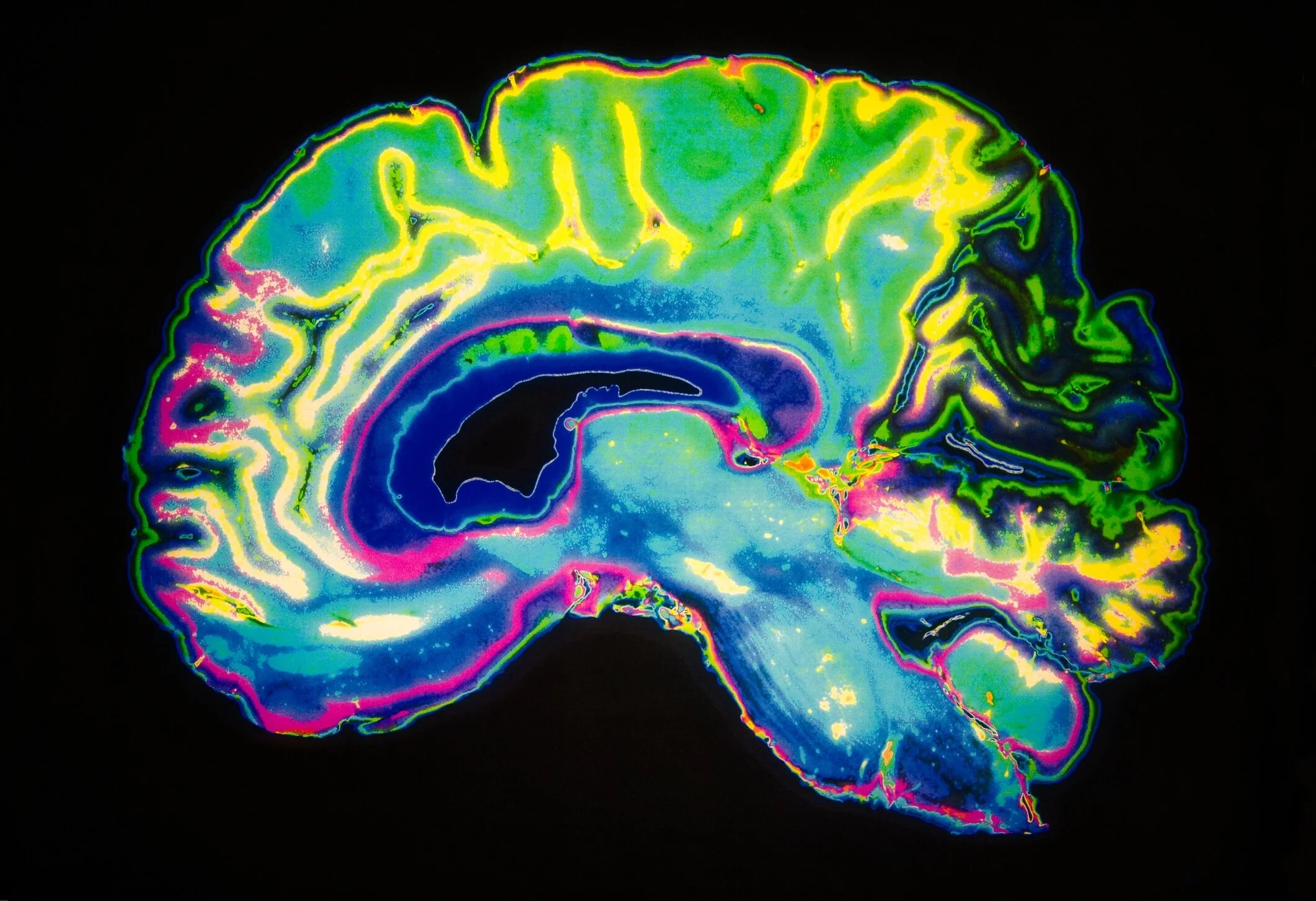A research team from the University of California, Los Angeles, analyzed over 60 sleep research studies and discovered that at the age of approximately 2.5 years, drastic changes occur regarding the function of sleep.
MRI scan - Image Credit: Daisy Daisy via Shutterstock / HDR tune by Universal-Sci
Our brain grows at a rapid rate during the first 2.5 years of our life. It turns out that the amount of so-called 'REM sleep' decreases drastically after that age. REM sleep stands for rapid eye movement sleep; it is a phase of sleep distinguished by random rapid movement of the eyes, supplemented by low continuous and passive partial contraction of the muscles throughout our body. REM sleep is physiologically distinct from other sleep phases, collectively called non-REM sleep.
The REM sleep phase is also the phase where our most vivid dreams occur. During all of this, the young brain is busy constructing and reinforcing neuronal junctions that attach neurons to each other, allowing them to communicate. All in all, very essential labor is being done inside a brain during this sleep phase.
Scientists calculated that 50% of sleep is REM sleep for babies. When we reach the age of 10, this percentage has been reduced to 25%. At the age of 50, only 15% of our sleep is REM sleep. According to senior author Gina Poe, professor of integrative biology and physiology, sleep is just as essential as food; it is miraculous how well sleep matches the needs of our nervous system. From jellyfish to birds to whales, everyone sleeps. While we sleep, our brains are not resting.
A possible explanation for the previously mentioned reduction in REM sleep is that, as we get older, the purpose of REM sleep shifts from constructing an infrastructure of neural connections to repair and maintenance where minor damage that we sustain during the day gets repaired, and harmful chemicals are removed.
As we get older our sleep cycle changes - Image Credit: aslysun via Shutterstock / HDR tune by Universal-Sci
The UCLA team discovered that there is a distinct turning point at about 2.5 years, where this functional change happens drastically fast. Van Savage, senior author of the study and professor of computational medicine and of ecology/evolutionary biology, stated in a press release that he was shocked how extremely fast this change occurred over a short period of time, as well as the fact that this abrupt switch occurs when we are so young.
One of the biggest takeaways from this large scale study is that, once again, it has been confirmed that sleep is incredibly important for our health and mental well-being. According to Poe, a chronic lack of sleep presumably contributes to long-term health issues like diabetes and obesity, as well as dementia and other cognitive disorders. When you start to feel tired, she said, don't fight it — go to bed.
The findings of the UCLA researchers have been published in the journal Science Advances (See link below)
Sources and further reading:
FEATURED ARTICLES:
If you enjoy our selection of content please consider following Universal-Sci on social media




















